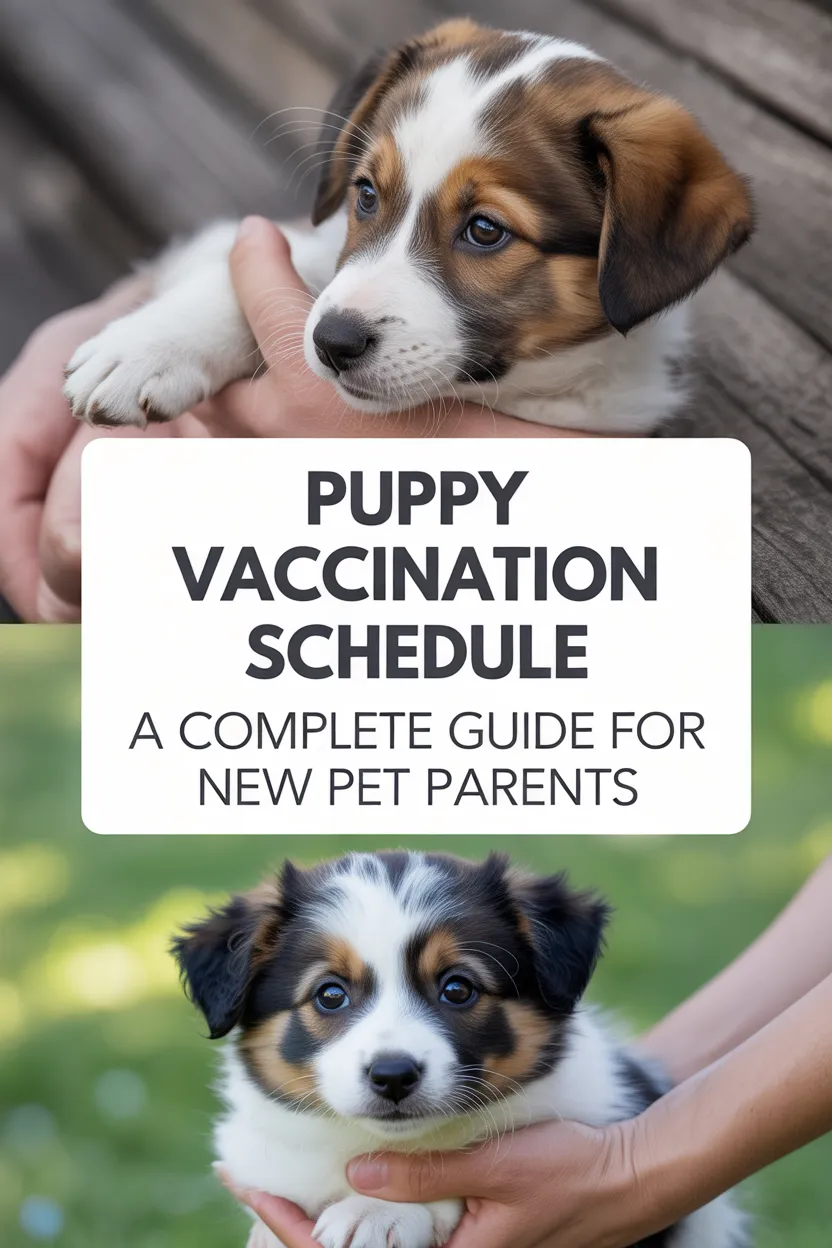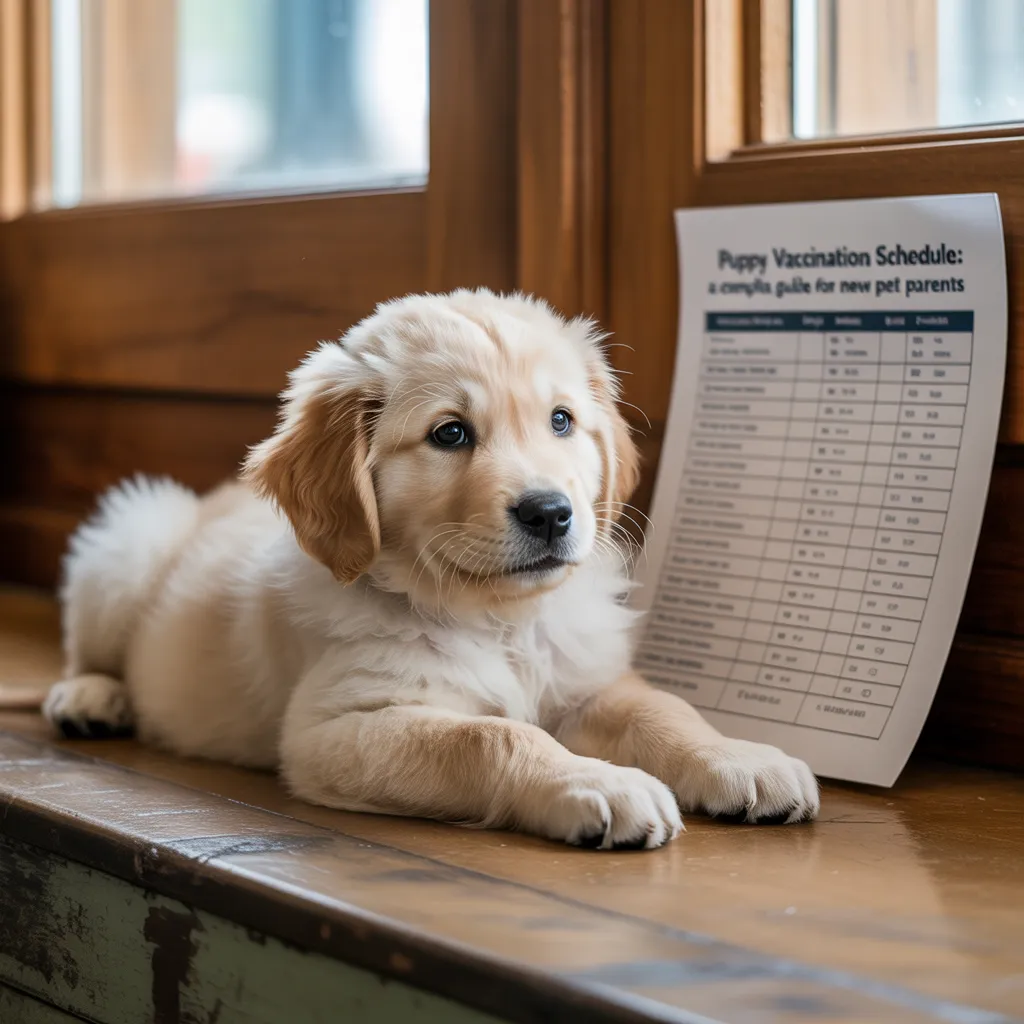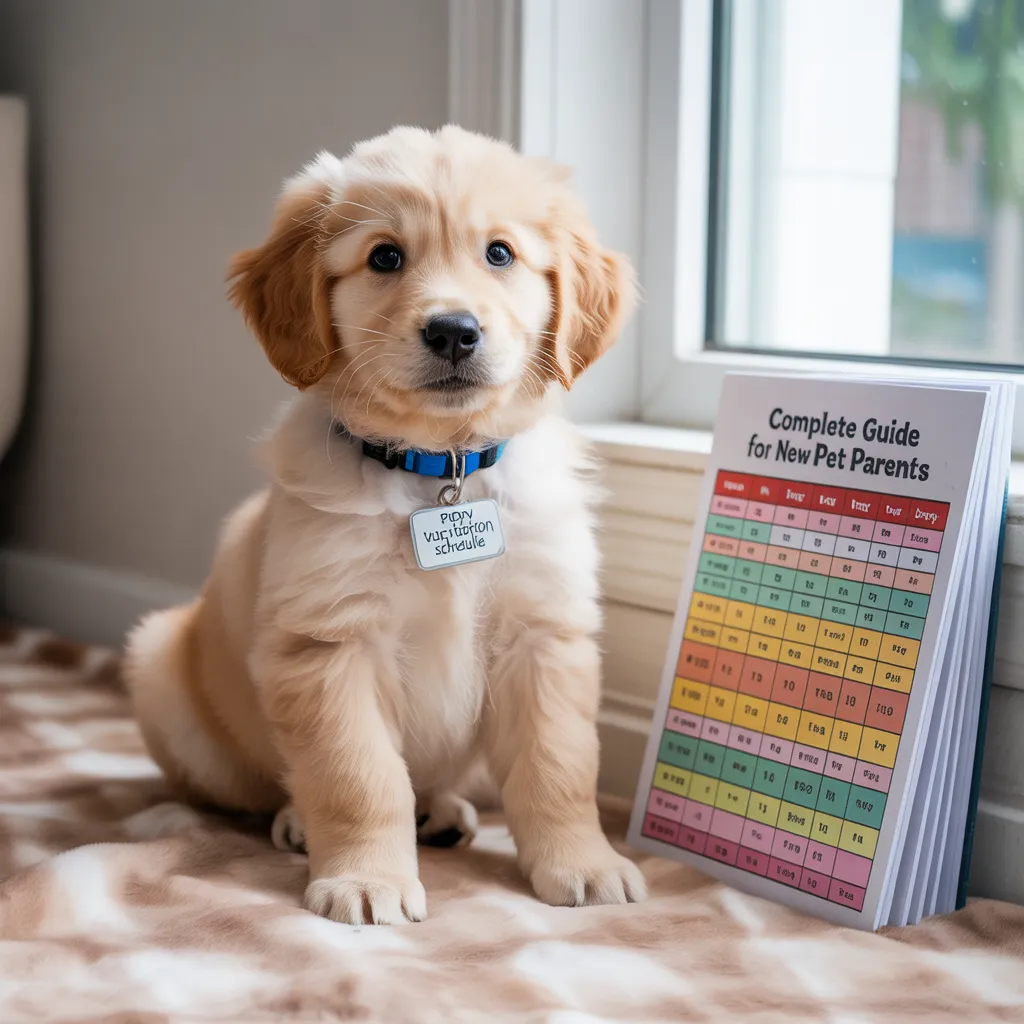Puppy Vaccination Schedule: A Complete Guide for New Pet Parents

Bringing home a puppy is pure joy — the cuddles, the zoomies, the unconditional love. But along with the fun comes responsibility, and one of the most important parts of puppy care is vaccinations. Following the right puppy vaccination schedule protects your pup from serious diseases and sets the foundation for a healthy, happy life.
I remember feeling overwhelmed when I got my first puppy. So many vaccines, so many dates — it felt confusing. But once I had a clear schedule and worked closely with my vet, everything became simple and stress-free. Here’s a complete guide to help you confidently navigate your puppy vaccination schedule.

1. Why Vaccinations Matter
Before diving into the puppy vaccination schedule, it’s important to understand why vaccines are crucial.
- Protect against deadly diseases like parvovirus and distemper.
- Prevent contagious illnesses from spreading to other pets.
- Build immunity during your puppy’s most vulnerable early months.
Vaccinations are acts of love and protection — ensuring your pup can explore the world safely.
2. Core Vaccines for Puppies
Core vaccines are essential for all puppies, regardless of breed or lifestyle. The puppy vaccination schedule usually includes:
- Distemper
- Adenovirus (Hepatitis)
- Parvovirus
- Parainfluenza
- Rabies
These protect against the most dangerous and widespread diseases.
3. Non-Core Vaccines
Depending on your location, lifestyle, or your vet’s advice, your puppy may also need non-core vaccines. These are added to the puppy vaccination schedule when needed:
- Bordetella (Kennel Cough) – important if your pup will be around other dogs often.
- Lyme Disease – recommended in tick-heavy areas.
- Leptospirosis – protects against bacteria found in water or soil.
- Canine Influenza – useful in areas with outbreaks.
4. Puppy Vaccination Schedule Timeline
Here’s a general puppy vaccination schedule (always check with your vet for exact timing):
- 6–8 Weeks Old: First round of DHPP (Distemper, Hepatitis, Parvovirus, Parainfluenza)
- 10–12 Weeks Old: Second DHPP + possible Bordetella
- 14–16 Weeks Old: Third DHPP + Rabies
- 12–16 Weeks Old: Optional non-core vaccines (Lyme, Leptospirosis, Influenza) based on vet guidance
- 1 Year Old: Booster shots for DHPP and Rabies
💡 After this, most vaccines require boosters every 1–3 years.

5. Tips for a Smooth Vaccination Experience
- Keep Records: Track dates, vaccines given, and upcoming boosters.
- Stay Calm: Puppies pick up on your emotions, so keep visits stress-free.
- Plan Ahead: Schedule appointments early and stay consistent.
- Watch for Side Effects: Mild fatigue or soreness is normal. Call your vet if symptoms seem severe.
Following these tips makes sticking to the puppy vaccination schedule easier for you and your pup.
6. Socialization and Safety
While waiting for vaccines to be completed, limit exposure to unknown dogs or public places. However, safe socialization is still possible:
- Invite fully vaccinated, friendly dogs for playdates.
- Expose your pup to new sounds, smells, and sights at home.
This balance protects your puppy’s health while supporting social growth.

Final Thoughts
The puppy vaccination schedule might feel overwhelming at first, but it’s one of the most important steps in raising a healthy, happy pup. Each shot is more than a medical procedure — it’s a promise of protection, love, and care.
When you see your puppy grow into a confident, playful dog, free from preventable diseases, you’ll know every vet visit was worth it. 🐶❤️
LSI Keywords Used: puppy shots timeline, dog vaccination chart, core vaccines for puppies, non-core puppy vaccines, new puppy health guide, vet puppy schedule, pet parent vaccination tips, puppy immunization guide






